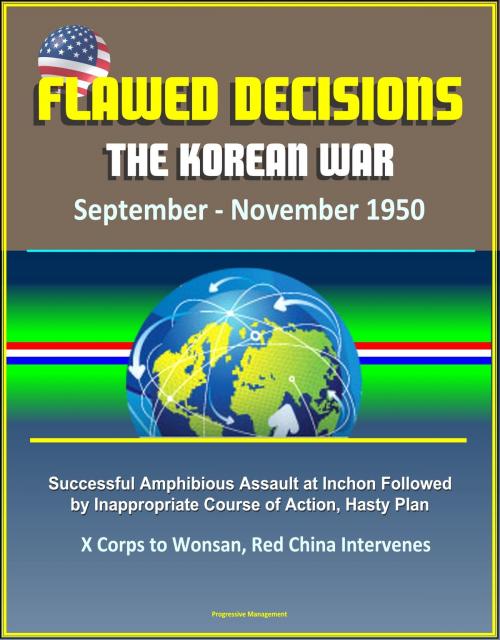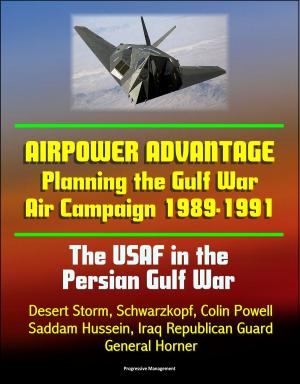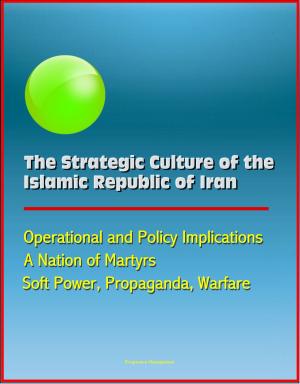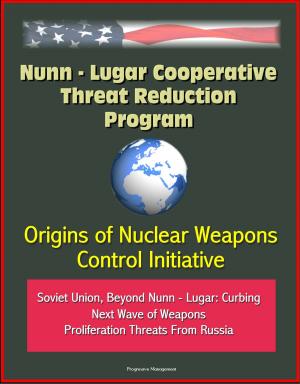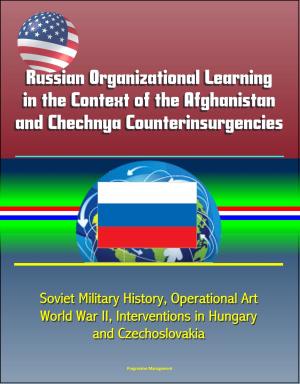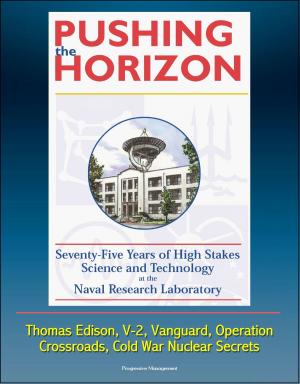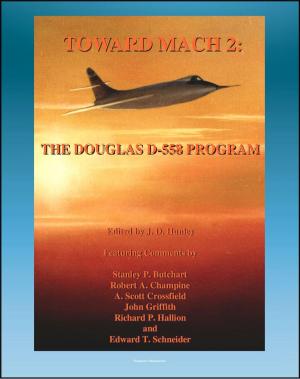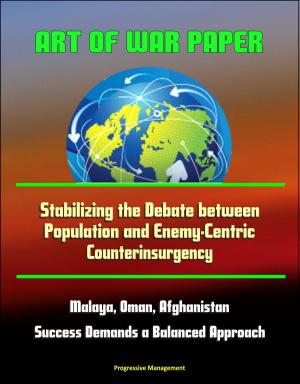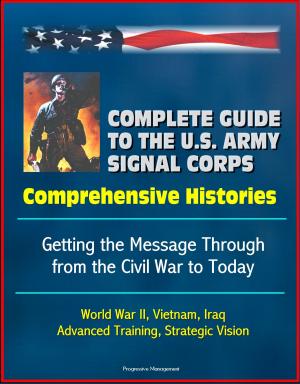Flawed Decisions: The Korean War September - November 1950 - Successful Amphibious Assault at Inchon Followed by Inappropriate Course of Action, Hasty Plan, X Corps to Wonsan, Red China Intervenes
Nonfiction, History, Asian, Korean War, Military, Asia| Author: | Progressive Management | ISBN: | 9781370448906 |
| Publisher: | Progressive Management | Publication: | March 26, 2017 |
| Imprint: | Smashwords Edition | Language: | English |
| Author: | Progressive Management |
| ISBN: | 9781370448906 |
| Publisher: | Progressive Management |
| Publication: | March 26, 2017 |
| Imprint: | Smashwords Edition |
| Language: | English |
This excellent report has been professionally converted for accurate flowing-text e-book format reproduction. In the months following North Korea's invasion of South Korea, United Nations forces fought back from near defeat to the brink of victory. General MacArthur received high praise for the successful amphibious assault at Inchon. This paper argues that his decision making after Inchon, between 15 September and late November 1950, was flawed and led to the selection of an inappropriate course of action for operations in North Korea. The paper questions General MacArthur's failure to pursue the nearly defeated North Korean forces, his decision to leave Eighth Army and X Corps as separate commands, and the fatal decision to advance his forces to the Manchurian border. Further, this paper argues that General MacArthur's success at Inchon, created an atmosphere in which his superiors hesitated to question his decision making.
In the months following the June 1950 North Korean invasion of South Korea, United Nation forces, commanded by General Douglas MacArthur, fought back from near defeat to the brink of victory. In an even shorter period of time those same forces suffered another massive defeat in November 1950, after crossing the 38th Parallel. This case study will examine General MacArthur's decision making between 15 September and late November 1950, to argue that his course of action after Inchon was inappropriate and resulted in a prolonged war without victory.
Popular Korean War history dwells on operations around the Pusan perimeter and the amphibious assault at Inchon. At Pusan, United States and Republic of Korea (ROK) forces bought necessary time to build up forces in Korea. This early defensive operation prevented a total defeat in South Korea. Inchon severed the supply lines of an already over extended North Korean Peoples's Army (NKPA) and sent it fleeing north in retreat. Historical records are less clear on why United Nations forces did not immediately exploit the success of Inchon. Rather than pursue and destroy the remaining North Korean forces, General MacArthur elected to prepare his forces for another amphibious operation on the east coast of Korea. After wasting valuable time repositioning his forces, General MacArthur crossed the 38th Parallel in pursuit of the NKPA. Was he justified in these actions, or did he fail to capitalize on the success of Inchon?
This excellent report has been professionally converted for accurate flowing-text e-book format reproduction. In the months following North Korea's invasion of South Korea, United Nations forces fought back from near defeat to the brink of victory. General MacArthur received high praise for the successful amphibious assault at Inchon. This paper argues that his decision making after Inchon, between 15 September and late November 1950, was flawed and led to the selection of an inappropriate course of action for operations in North Korea. The paper questions General MacArthur's failure to pursue the nearly defeated North Korean forces, his decision to leave Eighth Army and X Corps as separate commands, and the fatal decision to advance his forces to the Manchurian border. Further, this paper argues that General MacArthur's success at Inchon, created an atmosphere in which his superiors hesitated to question his decision making.
In the months following the June 1950 North Korean invasion of South Korea, United Nation forces, commanded by General Douglas MacArthur, fought back from near defeat to the brink of victory. In an even shorter period of time those same forces suffered another massive defeat in November 1950, after crossing the 38th Parallel. This case study will examine General MacArthur's decision making between 15 September and late November 1950, to argue that his course of action after Inchon was inappropriate and resulted in a prolonged war without victory.
Popular Korean War history dwells on operations around the Pusan perimeter and the amphibious assault at Inchon. At Pusan, United States and Republic of Korea (ROK) forces bought necessary time to build up forces in Korea. This early defensive operation prevented a total defeat in South Korea. Inchon severed the supply lines of an already over extended North Korean Peoples's Army (NKPA) and sent it fleeing north in retreat. Historical records are less clear on why United Nations forces did not immediately exploit the success of Inchon. Rather than pursue and destroy the remaining North Korean forces, General MacArthur elected to prepare his forces for another amphibious operation on the east coast of Korea. After wasting valuable time repositioning his forces, General MacArthur crossed the 38th Parallel in pursuit of the NKPA. Was he justified in these actions, or did he fail to capitalize on the success of Inchon?
